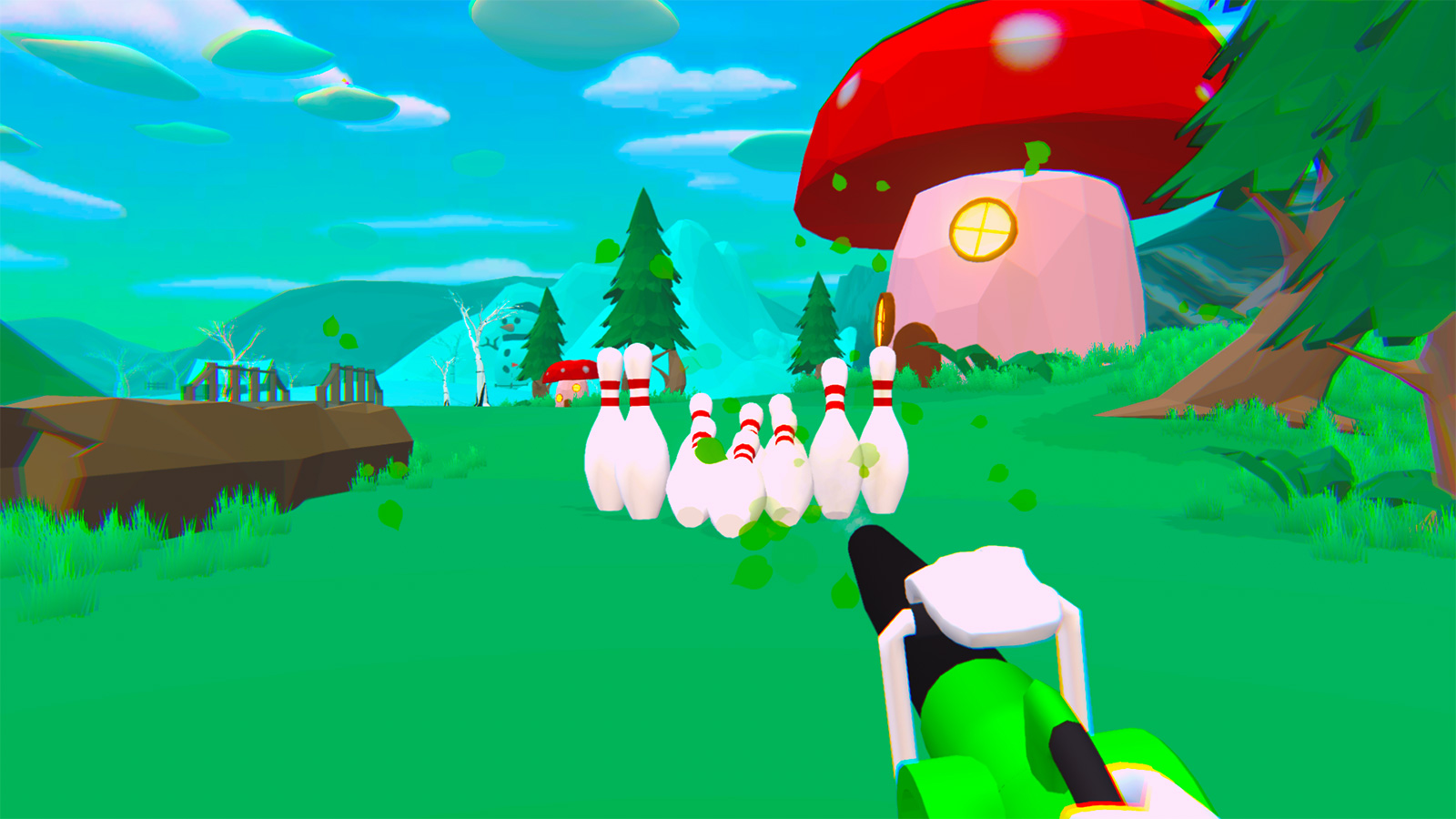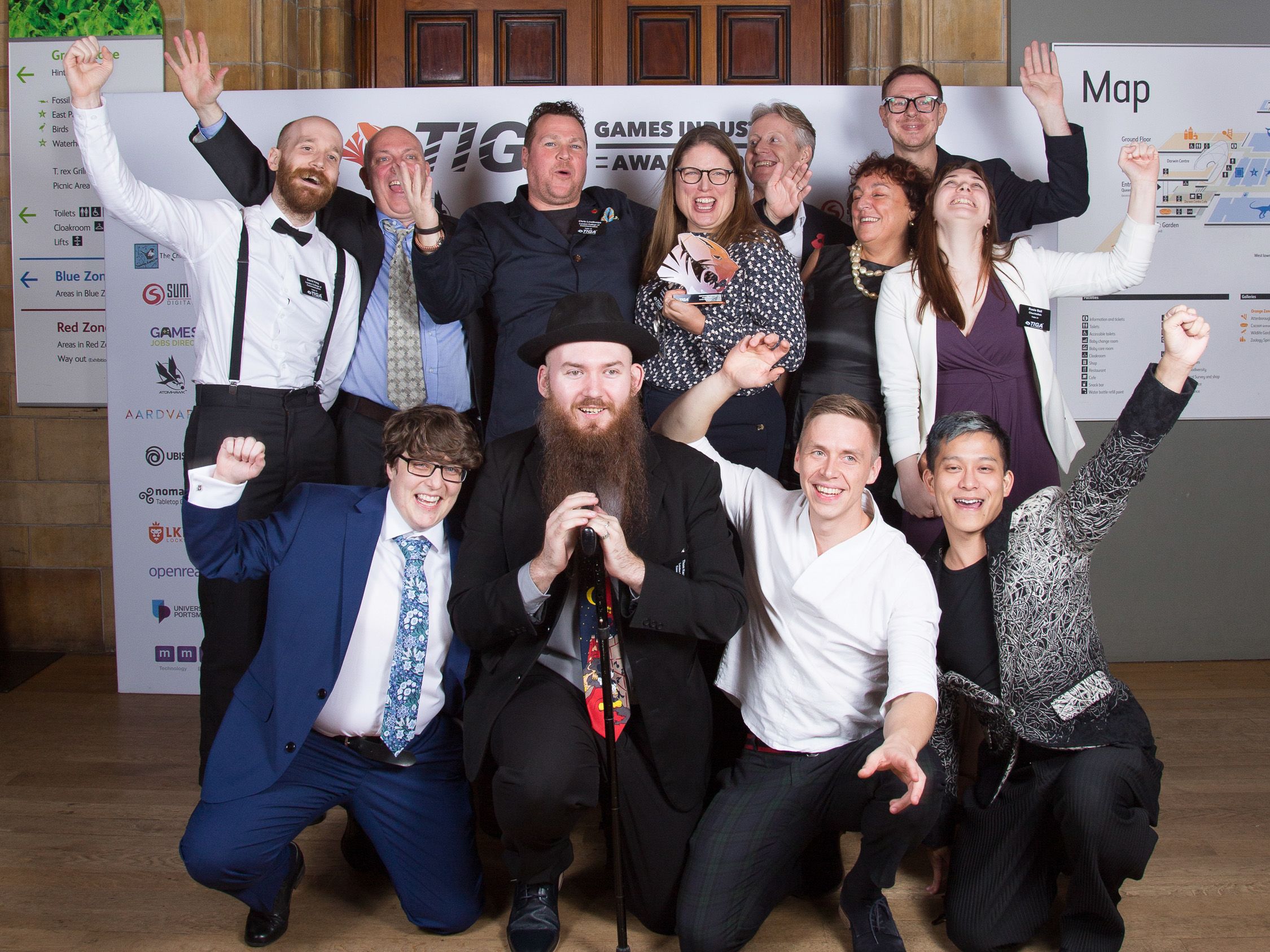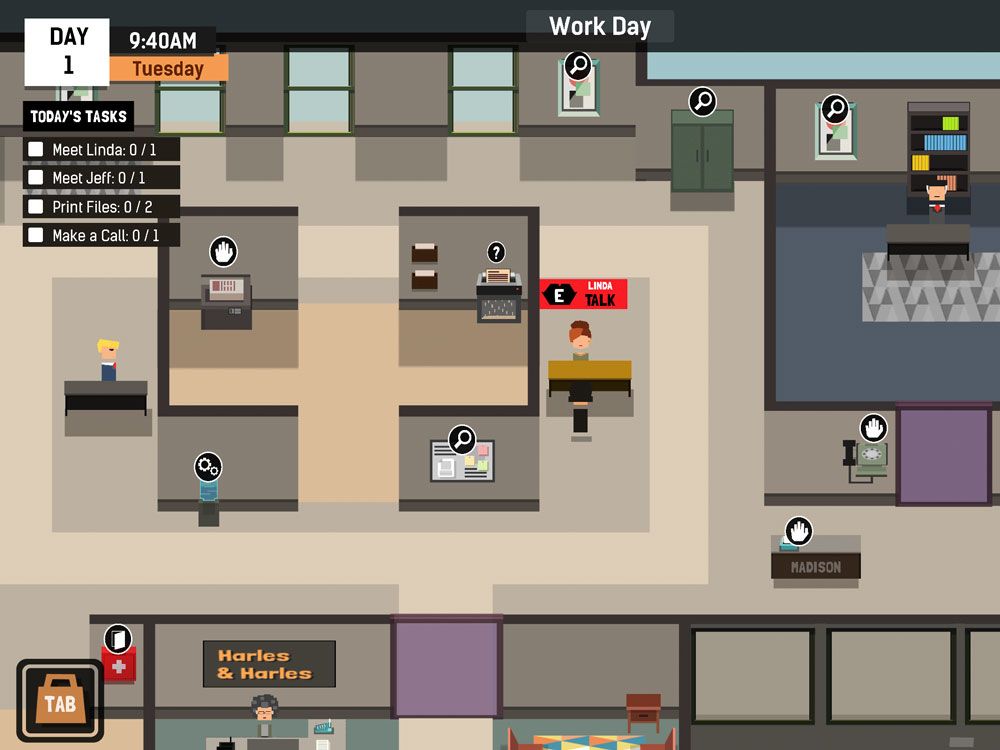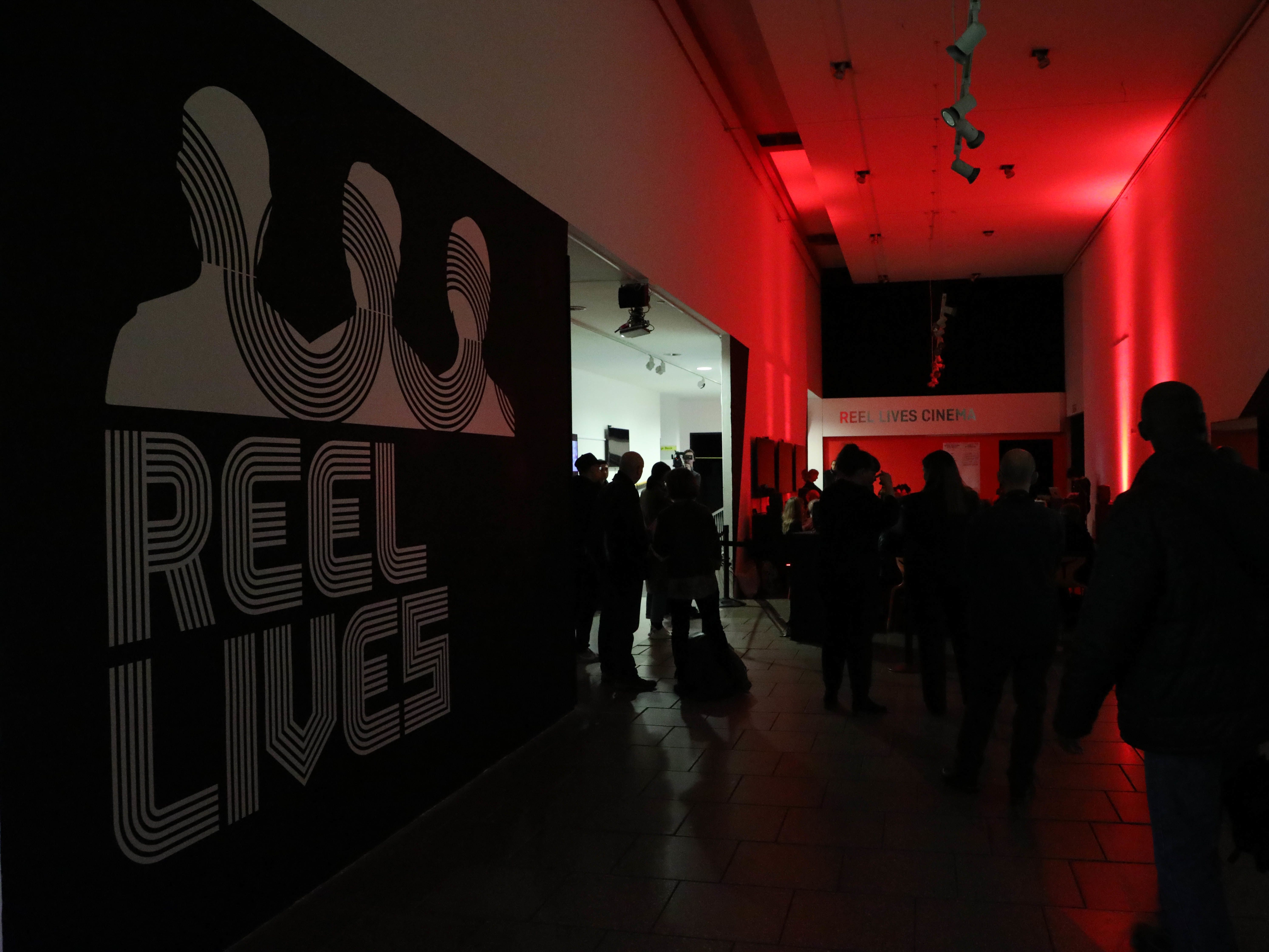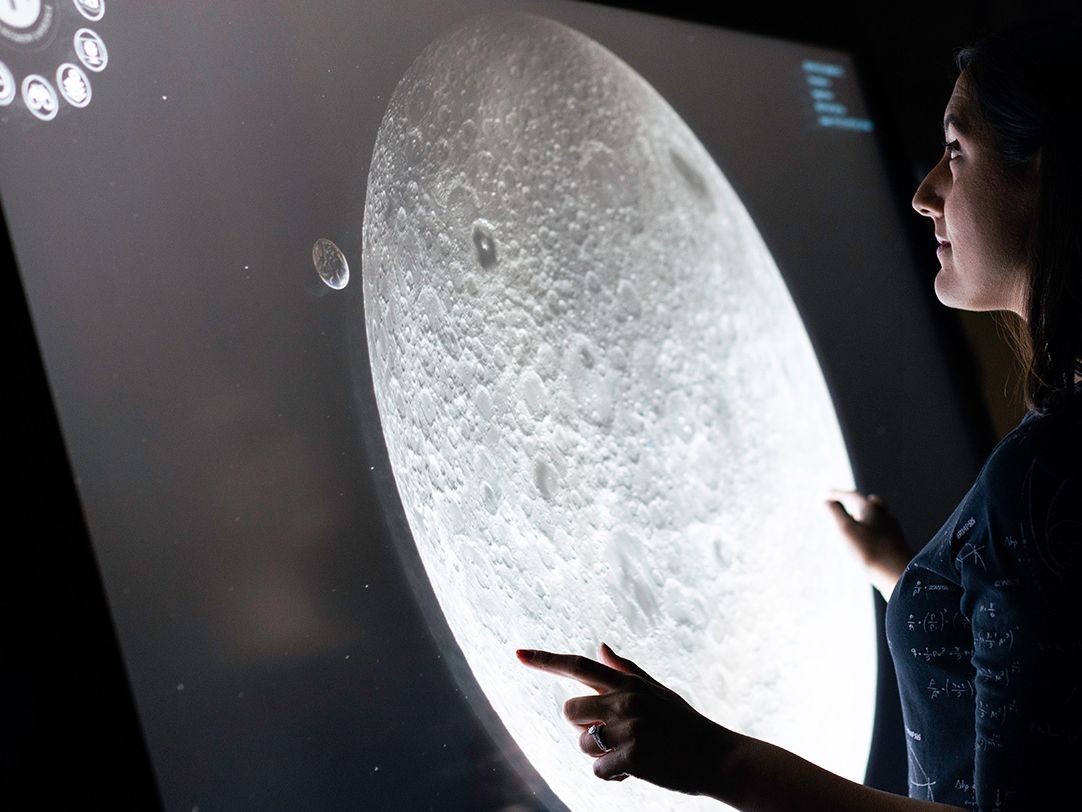Each year, Tranzfuser brings 'a new shot of top talent’ to the ecosystem of UK games development. Supported by UK Games Talent and Finance CiC, the competition provides a pathway to enterprise and employment for emerging creatives, supporting them through the games development process from exploring a concept to prototyping and publishing.
Participants are given the space to create the video game content they’re interested in making and would like to see audiences play. Working in small teams, they’re able to establish their own sustainable studios, grow skills to help them land dream jobs in the games industry, and consider important socio-cultural issues such as climate change.
The 2020 competition welcomed 28 teams from across the country, 3 of which featured graduates from London College of Communication (LCC):
Shotgun Mango
Founded by BA (Hons) Games Design graduates Oliver Pope and Kingsley Hopking, the Shotgun Mango team was completed by ACM’s James Evans and both Brad Johnson and Matt Curtis from the University of Hertfordshire. Collectively, the team used the Tranzfuser programme to gain invaluable experience and work towards an opportunity to release their project, Frog Island – a 3D platformer where audiences take on the role of a small frog with a big tongue and even bigger ambitions. Swinging between obstacles, players aim to travel through a series of levels as quickly as possible. In August, Shotgun Mango also made the Top 15 shortlist in UK Game of the Show, competing against well-established companies such as Codemasters and UsTwo.
OFFBRAND
Featuring the talents of BA (Hons) Games Design graduates Finn Fleming and Eimantas Kabakas alongside Zachary Creer from Escape Studios and Solent University’s Louise Kershaw, OFFBRAND is an independent games studio based in Brighton. Their project, Will it Golf? Is a single-player sandbox which encourages players to snatch the coveted title of ‘Master Will-It-Golfer’ by exploring a variety of environments and fun challenges.
WordPlay
Home to MA Games Design graduates Akshay Jain and Herman Ho, as well as MA Graphic Media Design graduate Amala Antony and University of Westminster’s Farhana Khan, WordPlay is an indie game development studio based in London. Their project, Days Lost, is a narrative puzzle game which takes players on the unusual journey of recovering past memories through the journal of a young woman, Natalia. Ultimately, it aims to explore ideas around empathy, encouraging audience to appreciate the 'little moments' of life.
2020 winners
After several months of hard work, design and development, in December, Transfuzer announced a total of 4 winners for the 2020 programme, which included LCC representatives OFFBRAND and WordPlay. As a result, both teams will receive additional support and funding to explore and expand their work further.
We caught up with Finn Fleming and Herman Ho to discuss their experiences of the competition, as well as their time at the College.
Tranzfuser 2020
Where did you first find out about the Tranzfuser opportunity, and how did you get involved?
Finn: We found out about Tranzfuser at EGX 2019, which we were able to attend for free as part of an excursion funded by BA (Hons) Games Design at LCC. Nice! We were really impressed by the games on display in the Tranzfuser area and after talking with some of the 2019 teams, we decided to give it a shot.
Herman: I was actually notified by Akshay (Jain) after he saw the post about Tranzsfuser on Twitter. We then gathered ourselves as a team of 4 - me, Akshay, Farhana and Amala – and decided to join Tranzfuser 2020.
Will it Golf? | OFFBRAND
Tell us about the work of your Tranzfuser team.
Finn: Will it Golf? began its conceptual journey as a game about a pig who could roll around like a boulder and fire coins out of a vacuum cleaner. In my final year of university, I played around with a lot of ideas, but we eventually settled on a loosely golf-inspired, open-world thing featuring Satan as the player's golfing rival and minions as their golf balls.
We took a long and winding path to get to where we are now, and that journey was only possible because of the growing confidence in our work that we were able to build in years 1 and 2 of our degree.
Herman: Wordplay Games is a collective made up of a writer, artist, designer, and developer, all of whom have a distinct style and attitude towards storytelling. We draw on our broad industry experience and networks to create the most powerful outcomes for the projects we work on, including Lost Days. We also share a common passion to create narratives, designs and games with the potential to inspire creativity and build connections between people.
We all wanted to win the Tranzfuser competition, but I also really just wanted to focus on what I enjoyed doing while spending time developing a concept with my teammates. Eventually, our hard work paid off!
Days Lost | WordPlay
Why is the work you created as part of Tranzfuser such a great example of your overall style or approach?
Finn: Will it Golf? is a wacky, weird, and wonderful venture into a realm of game design that has no rules and no precedent. We like to do things in our own way. We aimed to create an experience for the player that is full of odd moments and (mostly) pleasant surprises. When you're making something like that, there are times when the learning curve can seem pretty steep, but that's okay! It’s important to rise to the challenge!
Herman: Our work reflects the fact that not everyone in our team comes from a games design background. I’m a 3D generalist, for example - I focus on 3D modelling, animation and the environment, whereas Akshay is the programmer, Farhana is the narrative designer and Amala is the 2D Artist. When it comes to the practice of games design, we think about game play and puzzles together.
As a small size studio, we understand how games design is constantly in conversation with other roles. While we specialise on whatever each of us are working on, we can also get involved in developing ideas with the others, encouraging ourselves to go out of your usual area of expertise. Being a small-sized studio means there are more chances to learn like this, and I think these chances are the best.

What were the highlights of your time at LCC?
Finn: One huge highlight of our time on the BA (Hons) Games Design course would be our collaborative unit with BA (Hons) Animation in our second year. It was a unique opportunity to bring people from different walks of life together to exchange ideas and make a really cool thing. For me, it was an absolutely delightful experience full of challenges and opportunities for personal growth.
Another highlight would be the many games of chess and poker that we played together in the SU after class. Sometimes, the games were just an excuse to have a beer and get to know each other; other times, they were a segue into insightful conversations about our coursework and related design theory.
Herman: Before studying MA Games Design, I was an architecture graduate at the University of Edinburgh. I’ve always been keen on playing games and watching talks and videos on how games are developed. My time at LCC allowed me to go entirely outside my comfort zone – even learning how to code! I’m very happy to continue my interest in developing game environments, bringing my architectural knowledge into designing games with a spatial focus.
At my graduate degree show, I was very lucky to not only present my final major project, but to also be given a slot with MA Virtual Reality, where I presented one of the VR projects I'd completed as part of my degree. It's always so enjoyable to watch visitors playing my games, especially seeing their reactions, and since I had 2 spaces to present, I got double the fun!

What are your top tips for students who want to explore a future in the games industry?
Finn: My top tips would be: go to the events! Do the game jams! Talk to Thom and Zans and Roy and Dave about any upcoming opportunities and tell them if you have ideas about the course!
Introduce yourself to the Games Design alumni, as well as the students in the years above and below you - you never know where a potential business partner may be lurking. Check out Tranzfuser. Don't use Mixamo!
Reach out to people whose work you admire and ask them (politely) for mentorship. It might be hard to find a job when you leave uni, so make sure you build a strong network of contacts and connections while you have the chance.
Herman: Even if you aren’t able to get into the industry you’d like to right after graduation, keep doing what you love to do.
In the case of games design, keep making games, game art, 3D models or animations. Build up your portfolio and eventually, you’ll have a heavy load of stuff to present to employers. I’d also suggest trying to go out of your comfort zone in learning stuff that you don't know about - you never know, it could come in handy one day.
Related links:
- Find out more about the Tranzfuser programme.
- Explore work from OFFBRAND, WordPlay and Shotgun Mango.
- Learn more about our BA (Hons) Games Design and MA Games Design courses.
